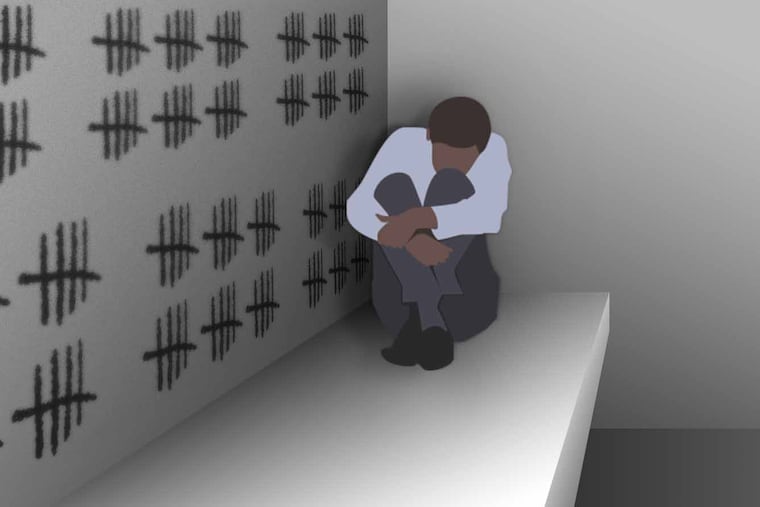Gov. Phil Murphy can end long-term solitary confinement in N.J. — and help end it in Pa. | Editorial
Ensuring success in reentry should start by not inflicting irreparable harm during incarceration.

Last week, Pennsylvania started automatically sealing 30 million old criminal records as the Clean Slate Act took effect. The Act was designed to help people involved with the criminal justice system succeed in their next steps. But a criminal record is not the only thing that people who have spent time incarcerated bring home after their release.
Incarceration is a traumatizing experience. Every month last year, 29 people incarcerated in Pennsylvania’s state prisons have attempted suicide — 15 of those people died in 2018. Only six months into 2019, nine people have died by suicide in Pa. state prisons.
Being removed from the community and held in a cell goes against the human condition, but there are specific practices that are more damaging than others. Chief among them is the use of solitary confinement — locking people alone for 23 hours a day, for days, weeks, months, or even years at a time. According to standards endorsed by the United Nations, solitary confinement of more than 15 days amounts to torture and can cause irreparable harm.
Last month, a bipartisan majority in New Jersey passed a bill that would prohibit the use of solitary confinement for more than 15 consecutive days or a total of 20 days out of 60. The bill also requires frequent medical and mental health examinations of anyone in solitary confinement. N.J. Governor Phil Murphy still hasn’t signed this bill and his office has not indicated whether he intends to do so or not.
The Star Ledger’s editorial board called on Murphy to sign the bill. The wellbeing of people incarcerated in Jersey should be a good enough reason for Murphy to sign a common-sense ban on the practice, but there is another reason — he can help pave the way for Pennsylvania.
According to the Pennsylvania Department of Corrections, there were 1,183 people in “disciplinary custody" in May. Of them, 590 were in solitary for more than 15 days. Another 128 people were on DOC’s restrictive release list, which is indefinite solitary confinement. These figures don’t include the 140 people on death row who are in de facto solitary confinement — sometimes for decades — or those in administrative custody during investigations.
In December, Representative Tina Davis, Democrat from Bucks County, introduced a comprehensive bill to address the issue of solitary confinement in the commonwealth. The bill both limits solitary confinement to 15 days and completely prohibits confinement of vulnerable incarcerated populations such as pregnant women, LGBTQ people, and those under 21 years old, and older than 70.
The bill has been stuck in the judiciary committee with little support. Davis recognizes that because of how comprehensive the bill is, passing it will be an uphill climb. Meanwhile, she intends to introduce a narrower bill to only prohibit the solitary confinement of pregnant women and women who recently gave birth.
If Pennsylvania is serious about ensuring success in reentry, that should start by not inflicting irreparable harm during incarceration. By signing the bill on his desk and ending long term solitary confinement in NJ, Gov. Murphy could help Pennsylvania lawmakers also find the courage to take a stand.